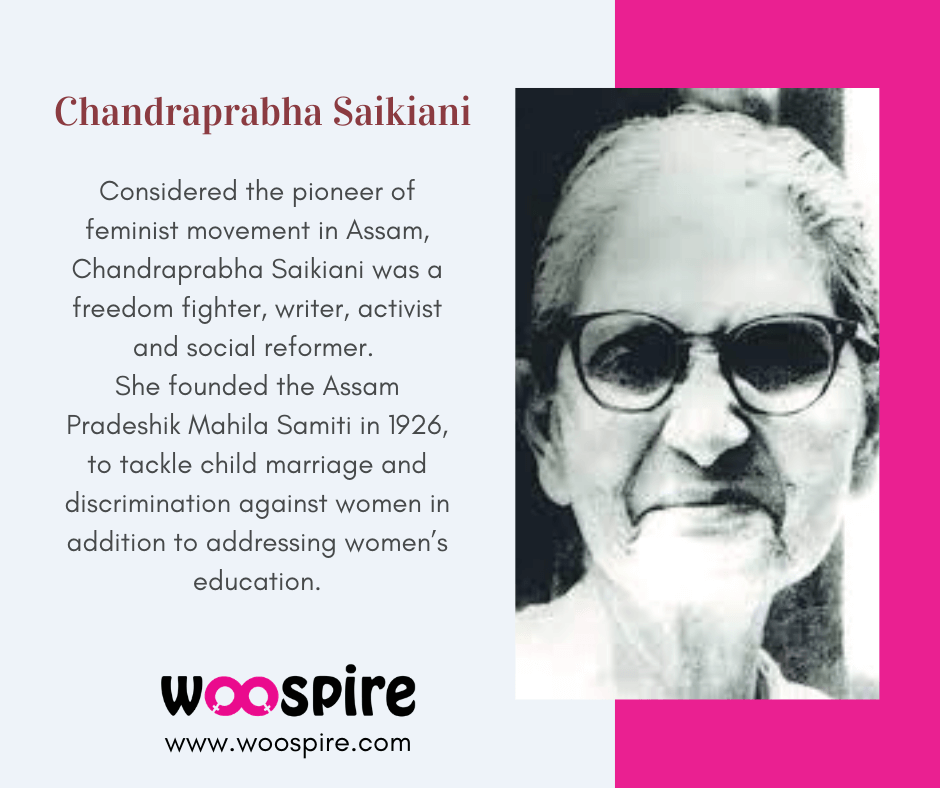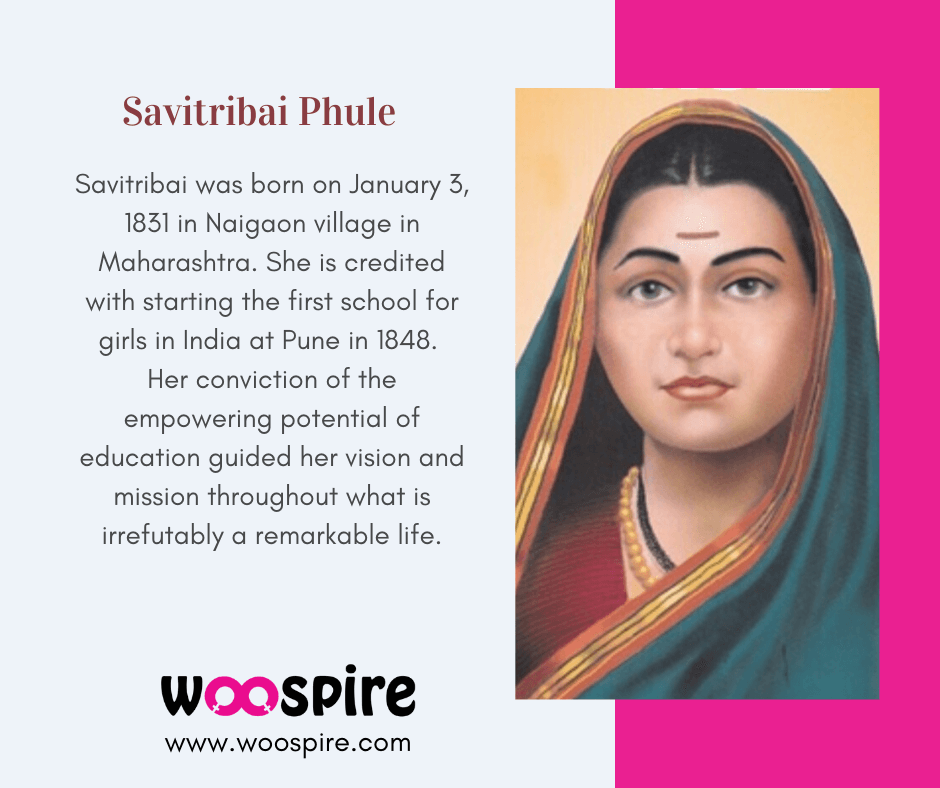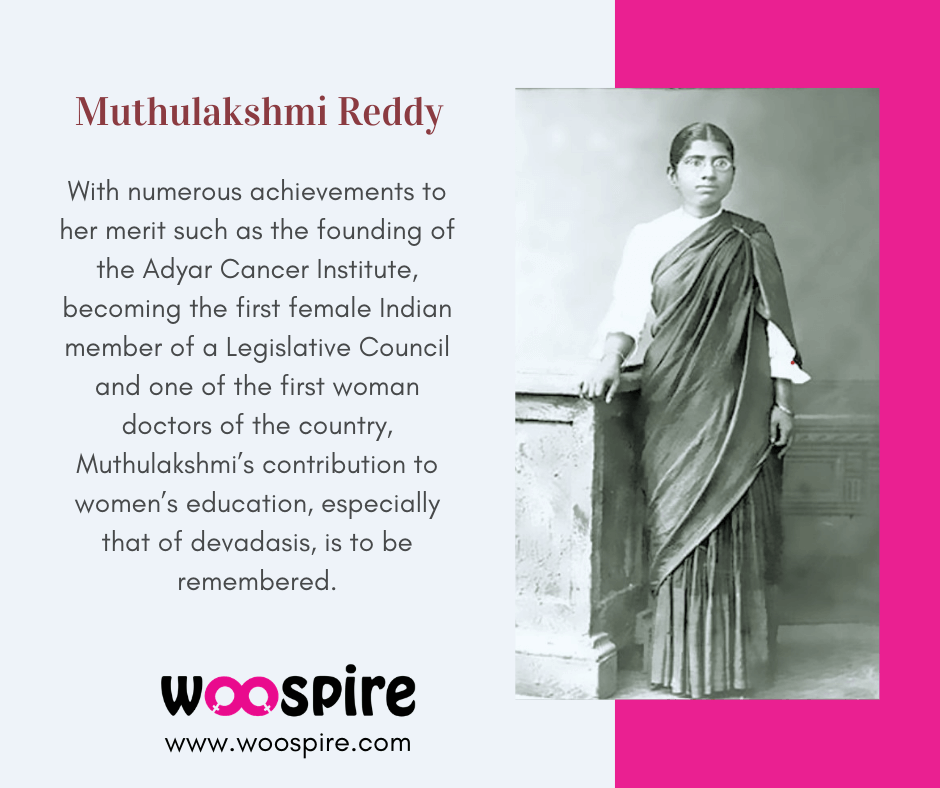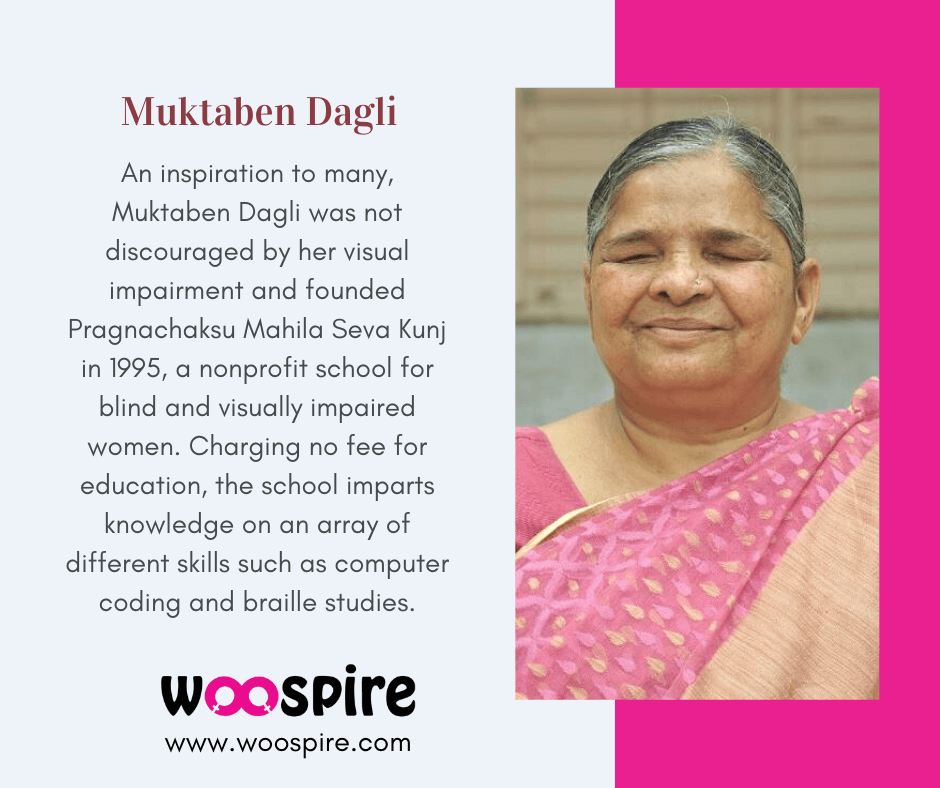The significance of education in any society is beyond debate. It has the miraculous power to dispel ignorance and empower a person to grow holistically. In a societal setting, it promotes social progress, and is the ultimate weapon against poverty and other social evils. It is no wonder that comprehensive and healthy education is considered a panacea.
Feminism has embraced women’s education because in many ways it counters patriarchy. It facilitates economic independence and empowers women to reclaim their rights. As a country we have come far in acknowledging the importance of women’s education. ‘If you educate a woman you educate a nation’ says an African proverb.
It is no secret that women were denied access to education for ages. But all that has changed due to the consistent and relentless work of many women who have challenged oppressive systems and have collectively brought education to women. Here, we remember a few of them.
Chandraprabha Saikiani

Chandraprabha Saikiani
Considered the pioneer of feminist movement in Assam, Chandraprabha Saikiani was a freedom fighter, writer, activist and social reformer. Born on 16 March, 1901 in Assam, Chandraprabha remains an extolled figure till date. The lack of a girl’s school in her locality did not discourage her relentless pursuit of education. Instead, she travelled a considerable distance to study at a boy’s school. True to the generous spirit of any social reformer, in the evenings Chandraprabha would teach the girls of her village the day’s learning. To that end she established a girl’s school, a makeshift shed, in Akaya village at the age of 13. This is where Neelkanta Barua, a school inspector, spotted her and facilitated a scholarship for Chandraprabha and her sister Rajaniprabha at Nagaon Mission School. Rajaniprabha would later on become the first female doctor of Assam.
Chandraprabha’s activism was well-rounded in that it actively sought equality of all sections of the society. She fiercely challenged anything that came in the way. She founded the Assam Pradeshik Mahila Samiti in 1926, to tackle child marriage and discrimination against women in addition to addressing women’s education.
The society she lived in was plagued by casteist and sexist restrictions. It was unfathomable for a person of a lower caste to have access to any of the social entitlements accorded to the dominant castes. The patriarchy was so pervasive that it was unusual for a woman to have a voice and an opinion of her own. At a time when panels where exclusive to men, Chandraprabha delivered her opinion on the damaging effects of opium consumption to a large audience. It was the first time a woman addressed a public gathering in Assam. Seeing that women were banned from entering certain temples, she constructed the Hajo Hayagriva Madhava temple which was open to all, irrespective of class, gender and caste. Chandraprabha Saikiani, with her fierce and rebellious activism, was certainly a godsend anomaly.
Savitribai Phule

Savitribai Phule
Any discourse on women’s education in India cannot go past the soaring edifice of Savitribai Phule. . Known as the mother of feminism in India, Savitribai was born on January 3, 1831 in Naigaon village in Maharashtra. She is credited with starting the first school for girls in India at Pune in 1848. She was illiterate and only nine years of age when she married Jyotiba Phule. Being a staunch advocate of education for social equality, Jyotiba Phule taught his wife whenever she brought lunch for him in the field. He later enrolled her in a teacher’s training institute in Pune. Savitribai’s contribution to education was such that efforts were taken to mark January 3rd as Teacher’s Day. Nevertheless the day is observed as Balika Din in Maharashtra.
The couple were against oppression and sedulously sought the emancipation and social progress of the deprived sections. They started a school at Bhide Wada with a western curriculum encompassing science, maths and social sciences. The unique teaching methodology practised in their schools drastically increased girl child enrolment. By 1851, they had three schools for girls under their belt. Their egalitarian outlook and commitment to each other and their cause makes them a power couple in Indian history.
Any reform movement that threatens orthodoxy and prevalent norms is destined to face counterinsurgency from the society. History is abounding with testimonies. So it is not surprising that the gatekeepers of oppression rallied in opposition to the revolutionary radicalism of the Phules. They lived in a period when education was monopolised and the Phules’ initiative to democratize it angered the crowd. Their work had been termed ‘evil’ and as a consequence the couple had extensively faced harassment. Every day as Savitribai walked to her school, stone, mud and dirt were flung at her, none of which managed to deter her. She faced resistance even from her own brother who was so convinced of the sanctity of oppressive social order that he believed his sister was garnering insult to the family.
In a letter to her husband in 1856, Savitribai eloquently points out that the absence of education is symptomatic of ‘gross bestiality’. Her conviction of the empowering potential of education guided her vision and mission throughout what is irrefutably a remarkable life. Despite all the resistance and attacks hurled at her by a casteist and sexist society, her fiery spirit penned down one of the primordial chapters of Indian feminism.
Dr Muthulakshmi Reddy

Muthulakshmi Reddy
The multifaceted Dr Muthulakshmi Reddy is often considered the unsung feminist of India. Donning the hats of educator, legislator and social reformer, she set precedent as an empowered woman with her academic and reformist achievements. When she wished to pursue her higher education at the Maharajas College at Pudukottai, a men’s college, she suffered great backlash. Several protests erupted and the parents of the enrolled students threatened to withdraw their wards. Yet, the progressive Raja of Pudukottai admitted her against all opposition, and history was made.
With numerous achievements to her merit such as the founding of the Adyar Cancer Institute, becoming the first female Indian member of a Legislative Council and one of the first woman doctors of the country, Muthulakshmi’s contribution to women’s education, especially that of devadasis, is to be remembered.
During her period, while reform through legislation was underway, a deep-rooted social stigma still haunted the devadasis. When a few girls sought refuge with Muthulakshmi from the devadasi system, she started the Avvai home in 1931, which functions to date. The home also opened itself to orphaned girls and destitute women across social barriers and committed itself to educating them. Even today, the mission statement of Avvai home remains, ‘Life of Dignity through Education’.
Woman Educator of Today- Muktaben Dagli

An inspiration to many, Muktaben Dagli was not discouraged by her visual impairment and founded Pragnachaksu Mahila Seva Kunj in 1995, a nonprofit school for blind and visually impaired women. Charging no fee for education, the school imparts knowledge on an array of different skills such as computer coding and braille studies. Many of the students have gone on to have successful careers.
While gender equality remains a work in progress, feminist movements, true to its name, will always be in motion. While our country inches towards 100% literacy, the prominent gender gap in education is to be comprehensively addressed. Poverty, child marriage and the stigma around menstruation are a few factors curbing women’s education. Activism that addresses any or all of these elements is paving way to reduce the gender gap. When women’s education is still a social concern, we will always be in need of social reformers and activists. While pioneers such as Anutai Wagh, Tarabai Shinde and Begum Zafar Ali adorn the pages of our feminist history, it is equally important to remember contemporary leaders like Muktaben Dagil and take collective responsibility in carrying the torch.

Responses